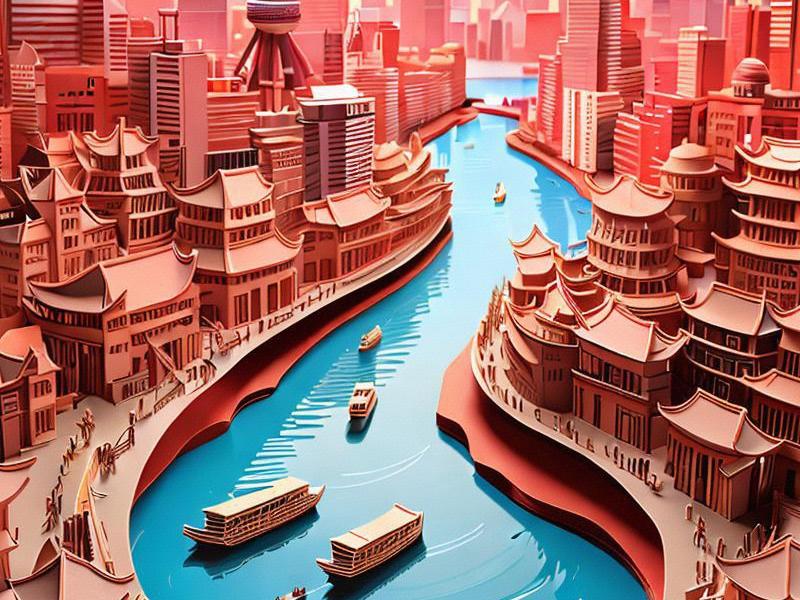This article delves into the multifaceted essence of Shanghai, exploring its rich history, vibrant culture, rapid urban development, and its status as a global economic powerhouse. Shanghai's journey from a modest fishing village to a world-renowned metropolis is a testament to China's transformation over the past century.

Shanghai, often referred to as the "Pearl of the Orient," stands as a beacon of China's economic and cultural progress. Situated at the mouth of the Yangtze River, this city has long been a gateway for trade and cultural exchange, reflecting a unique blend of tradition and modernity.
Historically, Shanghai's rise began in the 19th century when it was opened up to foreign trade following the Treaty of Nanking. This marked the start of Shanghai's transformation into a bustling international port city. The establishment of the International Settlements and the French Concession brought a wave of Western influence, leaving an indelible mark on the city's architecture, cuisine, and lifestyle.
One cannot discuss Shanghai without mentioning its iconic skyline, a symbol of the city's rapid urban development. The Bund, with its colonial-era buildings, offers a glimpse into the past, while the futuristic skyline of Pudong showcases the city's ambition and progress. The Oriental Pearl Tower, the Jin Mao Tower, and the Shanghai Tower are not just architectural marvels but also represent Shanghai's aspirations to be a global financial hub.
上海龙凤千花1314
Culturally, Shanghai is a melting pot of influences. The city is renowned for its art scene, with the M50 Creative Park and the Power Station of Art being hotspots for contemporary art enthusiasts. Traditional Chinese opera, known as Yueju, continues to thrive, blending with modern performances that reflect the city's dynamic spirit. The city's culinary scene is equally diverse, offering everything from Shanghainese delicacies like xiaolongbao (soup dumplings) to international flavors that cater to its cosmopolitan population.
Economically, Shanghai is a powerhouse. It is home to the Shanghai Stock Exchange, one of the largest in the world, and is a major center for finance, trade, and logistics. The city's free trade zone has attracted numerous multinational corporations, making it a hub for international business. Shanghai's economic success is not just a story of growth but also of innovation and resilience.
上海贵人论坛
The city's commitment to sustainability and green development is evident in its urban planning. Initiatives like the construction of the world's first maglev train and the expansion of its metro system demonstrate Shanghai's focus on efficient and eco-friendly transportation. The city's green spaces, such as Century Park and Zhongshan Park, provide residents with areas to relax and connect with nature amidst the urban sprawl.
Shanghai's journey is not without challenges. The rapid pace of development has brought issues such as housing shortages and environmental concerns. However, the city's leadership has been proactive in addressing these challenges through innovative policies and sustainable practices.
上海品茶网
In conclusion, Shanghai is a city that embodies the spirit of China's transformation. Its rich history, vibrant culture, economic prowess, and commitment to sustainability make it a unique and dynamic metropolis. As Shanghai continues to evolve, it remains a symbol of China's aspirations and a testament to the possibilities of urban development.